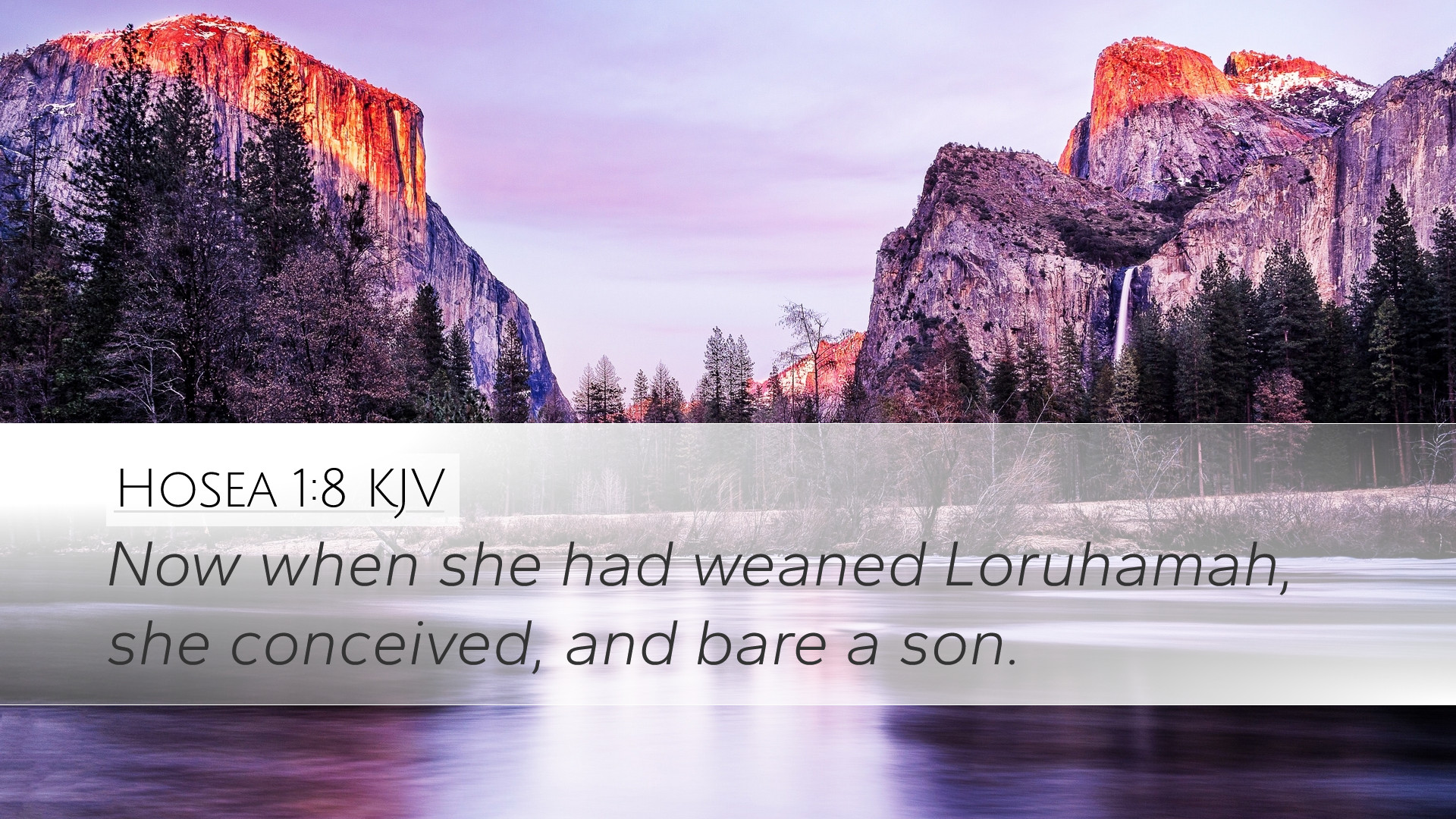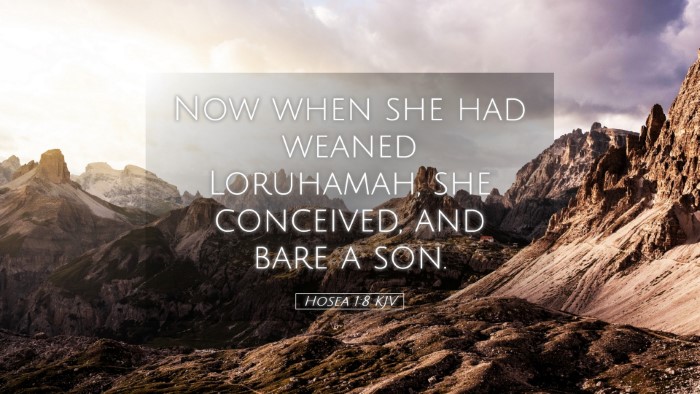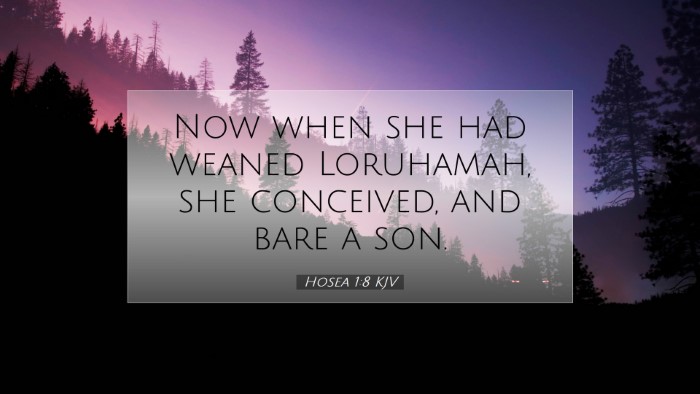Old Testament
Genesis Exodus Leviticus Numbers Deuteronomy Joshua Judges Ruth 1 Samuel 2 Samuel 1 Kings 2 Kings 1 Chronicles 2 Chronicles Ezra Nehemiah Esther Job Psalms Proverbs Ecclesiastes Song of Solomon Isaiah Jeremiah Lamentations Ezekiel Daniel Hosea Joel Amos Obadiah Jonah Micah Nahum Habakkuk Zephaniah Haggai Zechariah MalachiHosea 1:8
Hosea 1:8 KJV
Now when she had weaned Loruhamah, she conceived, and bare a son.
Hosea 1:8 Bible Commentary
Commentary on Hosea 1:8
Hosea 1:8 states, "Now when she had weaned Loruhamah, she conceived and bore a son." This verse holds rich significance both in terms of its historical context and its theological implications. It reflects the tumultuous relationship between Israel and God, and it is essential to examine its layers of meaning as seen through various commentaries.
Historical Context
The Book of Hosea is set during a time of political strife and moral decay in Israel. The prophet Hosea's marriage to Gomer symbolizes God's relationship with Israel, characterized by unfaithfulness and divine patience. In this vein, Hosea's children bear significant names that reflect God's message to His people.
Significance of Weaning
The act of weaning in this verse suggests a period of transition. Matthew Henry elaborates on the concept of weaning as not merely a physical separation but as an important stage in growth and maturing. It indicates a time when a child begins to rely less on the immediate and begins to interact with the world more independently.
Names of the Children
The names of Hosea's children serve as prophetic indicators of Israel's spiritual state. Loruhamah, meaning "not having obtained mercy," signifies God's withdrawal of mercy from the northern kingdom of Israel. Adam Clarke notes that this reflects a dire warning towards the people of Israel who have turned away from the covenant with God.
Theological Implications
The verse reflects God's judgment as well as His desire for restoration. The sequence of weaning and the birth of a son portrays a dynamic of loss followed by the hope of regeneration. Albert Barnes points out that while judgment is imminent, God still retains a promise of eventual mercy and restoration for His people, which would be fulfilled through the coming of the Messiah.
Symbolism of the Son
The birth of a son after Loruhamah's weaning can be interpreted as a symbol of renewal and hope amidst despair. It reinforces the theme that God is always preparing a way for redemption, even in the most dire circumstances. This aligns with the New Testament message of Christ, who is the ultimate fulfillment of God’s promises.
Application for Ministry
For pastors and theological leaders, Hosea 1:8 serves as a powerful reminder of God’s unchanging nature in the face of human rebellion. Understanding the complexity of this verse enhances the ability to preach God’s grace and the potential for restoration to congregations that may feel distant from Him.
- God's Patience: The weaning process signifies that God, too, is patient with His people. This can guide pastoral counseling, offering hope for those in spiritual transition.
- Call to Repentance: The prophecy embedded in the names of the children encourages a call to repentance and returning to God. Pastors can reflect on this when addressing the need for congregational renewal.
- Messianic Hope: The mention of a son represents hope and anticipation for future grace. This can inspire teaching that emphasizes the fulfillment of God's promises through Christ.
Conclusion
Hosea 1:8 encapsulates a profound narrative of judgment intertwined with mercy. The weaning of Loruhamah and the subsequent birth of a son symbolize the complex relationship between humanity and divine providence. As seen through the insights of Matthew Henry, Albert Barnes, and Adam Clarke, this verse invites believers and scholars alike to reflect on the themes of patience, repentance, and the hope of redemption.


